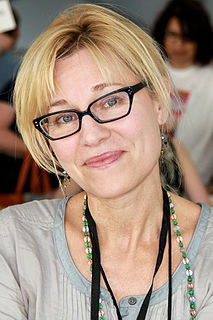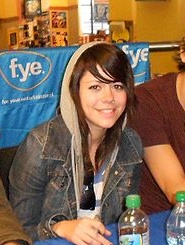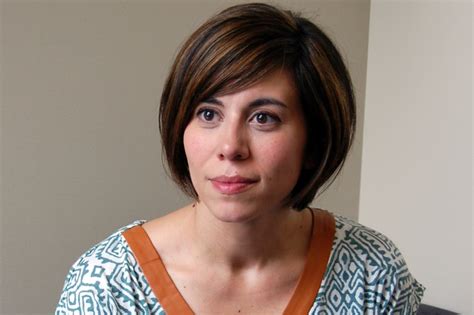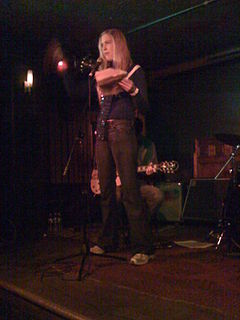A Quote by Elizabeth Crook
I'd be a dope to compare my writing with Wallace Stegner's, but that book probably influenced me in ways I didn't even realize while I was writing The Night Journal.
Related Quotes
I think that if you listen to the same exact genre of music that you play, it is so easy to be influenced by it. There will be times where we are writing a song, and then realize that it songs like something we just heard on the radio. There was a while when we were writing, that I didn't listen to music because I didn't want to be influenced.
I didn't know until high school that I was interested in writing in any real way. But there was this boy that I had a crush on, and I used to tell him all the time what I felt about him. Finally he gave me a blank journal and said to write it all down - and it didn't take me very long to realize how much I loved writing.
The best advice on writing was given to me by my first editor, Michael Korda, of Simon and Schuster, while writing my first book. 'Finish your first draft and then we'll talk,' he said. It took me a long time to realize how good the advice was. Even if you write it wrong, write and finish your first draft. Only then, when you have a flawed whole, do you know what you have to fix.
The process of writing a book is infinitely more important than the book that is completed as a result of the writing, let alone the success or failure that book may have after it is written . . . the book is merely a symbol of the writing. In writing the book, I am living. I am growing. I am tapping myself. I am changing. The process is the product.
I was influenced by the Beats because I actually just began to commit adolescence around 1955, when "Howl" and Rebel Without a Cause and a lot of other new things were popping up. (Again I'm trying to give you a finite version of this career.) And then I came under the sway of Wallace Stevens when I was in college and graduate school, and basically set as a life goal the ambition of writing third-rate Wallace Stevens. I thought I would be completely content if I was recognized at some later point in my life as a third-rate Wallace Stevens.
I say at the very end of "Winter Journal" that I do dream about my father often. I think I have a tremendous compassion for him, which has grown over the years. A certain kind of pity for him also in that he was so unrealised as a human being, so dogged, and so shut-off from people in many ways. You know, I've been writing another book, and it's another non-fiction autobiographical work, kind of a compliment to "Winter Journal", and it's just finished.
I would rather not write if I'm depressed, or am going through a breakup, or I've had some disappointment, or I'm having a family issue. You don't want to just put out an open wound. Sometimes that just isn't even really good writing. Good writing should be good writing and storytelling and not just therapy or someone's personal journal.
For me, a lot of Discipline was very personal writing, like writing through and working out being inside this gendered body and also the compulsions of the body, the muting of the mind as driven by the body. My father had died some years ago so he haunts the book too, just floats through it ghost-like. But, the writing of every book is different for me. They are so like living creatures, these books, so I don't know what's carried over into the writing of the next things - except maybe that I'm best when I make my writing practice a routine.







































